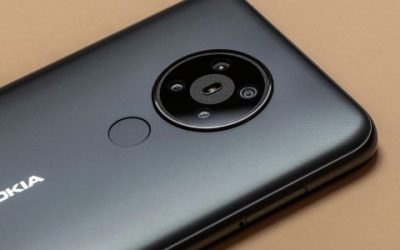In a significant setback for global tech giant Samsung, a Texas federal jury has handed down a USD 111.7 million verdict in favor of Maxell, ruling that Samsung infringed three patents covering user interface technology, multimedia processing, and smart networking. The dispute, which began in 2023, highlights the escalating risks of overlooking expired licenses and underestimating legacy patent portfolios.
Case overview
The lawsuit — filed in the Eastern District of Texas (Case No. 5:23-cv-00092) — stems from Samsung’s alleged unauthorized use of Maxell’s patented technologies after its 10-year license agreement expired in 2021. Originally inked with Hitachi Consumer Electronics (Maxell’s former parent), the agreement granted Samsung access to a set of Maxell’s technologies.
Once the agreement lapsed, Samsung declined to renew, reportedly dismissing the patents as invalid — a stance that prompted Maxell to initiate multi-jurisdictional legal action across the US, Germany, and Japan.
Infringing products
The jury found that a wide swath of Samsung’s product portfolio violated the patents, including:
- Galaxy smartphones and tablets
- SmartThings Smart Home hub
- Smart home appliances
- Possibly other network-connected consumer devices.
These devices leveraged patented functionalities related to device unlocking, image and video processing, and networked media management, allegedly without valid licensing.
The patents at a glance
Let’s break down the three key patents involved in the case:
US 8,982,086: Intelligent touch-based user authentication
This patent covers a multimodal user identification system using a touchscreen. It detects the contact location and area on the display, distinguishing input from the pad or tip of a finger, and triggers actions based on matching stored reference inputs.
- Relevance: Used in secure device unlocking mechanisms on smartphones and tablets.
US 10,176,848: VIP-based smart playback
This multimedia patent uses facial recognition to tag specific people (like VIPs) in recorded videos. It enables selective playback of segments containing those individuals, creating user-personalized viewing experiences.
- Relevance: Smart photo/video curation on Galaxy devices or surveillance review tools.
US 11,017,815: Multi-group media classification & management
This system allows video content to be grouped under multiple classifications (e.g., family, events, hobbies), with intelligent UI overlays for managing media via user-defined playlists. Even if content is deleted from one category, it remains accessible through another.
- Relevance: SmartThings ecosystem, smart TVs, or content organization on mobile/tablets.
What this means for Samsung—and everyone else
While Samsung is expected to appeal, this verdict adds to the growing list of nine-figure IP judgments it has faced in East Texas, including a $279M verdict just last month in a separate wireless dispute.
For Maxell, the win is more than financial — it validates the continued enforceability of maturing patents, especially in connectivity and user-interface-driven tech.
Conclusion & way forward
This case is a stark reminder that expired licenses don’t equate to expired risk. In a world where smartphones, smart homes, and AI-powered media platforms intersect, companies must ensure they aren’t unintentionally relying on expired rights or overlooked IP.
Takeaways
- License audits and renewal negotiations must be prioritized, especially at the tail-end of agreements.
- Old patents can still pack a punch, especially when tied to enduring user experiences or standards.
- Global litigation exposure is now the norm in high-tech — invalidity arguments alone won’t guarantee safety.
Author’s comment
This verdict reaffirms the criticality of tracking IP obligations across global product ecosystems, especially post-license expiration.

Written by Aditya Bansal
Co-Founder, PatVerse
You may also like…
Survival of the fittest: Strava sues Garmin for patent infringement
Fitness app company Strava has recently made waves in the running and cycling communities after suing Garmin for...
FRAND compliance and conditional injunctions: key lessons from China’s VoiceAge v. HMD SEP decision
Case background and conditional injunctions A recent ruling by the Fuzhou Intermediate People’s Court has drawn...
Clarivate delivers new AI-powered solutions within Innography for competitive benchmarking and standard-essential patent analysis
AI Classifier delivers patent classification with up to 97% first-pass accuracy for portfolio benchmarking, while SEP...
Contact us to write for out Newsletter














